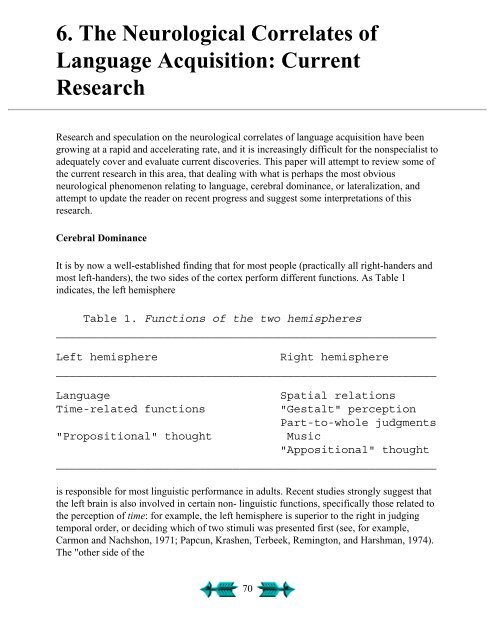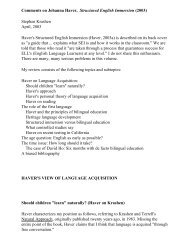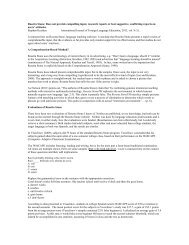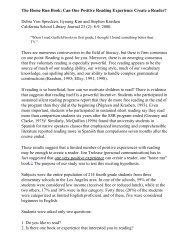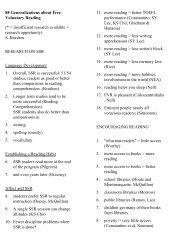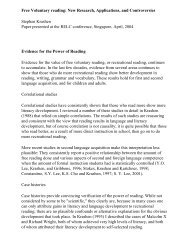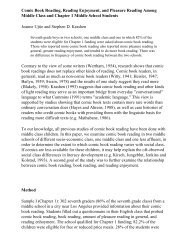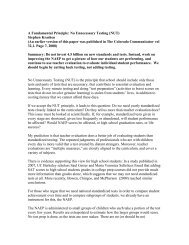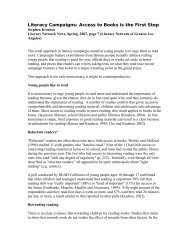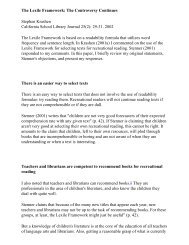Second Language Acquisition and Second ... - Stephen Krashen
Second Language Acquisition and Second ... - Stephen Krashen
Second Language Acquisition and Second ... - Stephen Krashen
Create successful ePaper yourself
Turn your PDF publications into a flip-book with our unique Google optimized e-Paper software.
6. The Neurological Correlates of<br />
<strong>Language</strong> <strong>Acquisition</strong>: Current<br />
Research<br />
Research <strong>and</strong> speculation on the neurological correlates of language acquisition have been<br />
growing at a rapid <strong>and</strong> accelerating rate, <strong>and</strong> it is increasingly difficult for the nonspecialist to<br />
adequately cover <strong>and</strong> evaluate current discoveries. This paper will attempt to review some of<br />
the current research in this area, that dealing with what is perhaps the most obvious<br />
neurological phenomenon relating to language, cerebral dominance, or lateralization, <strong>and</strong><br />
attempt to update the reader on recent progress <strong>and</strong> suggest some interpretations of this<br />
research.<br />
Cerebral Dominance<br />
It is by now a well-established finding that for most people (practically all right-h<strong>and</strong>ers <strong>and</strong><br />
most left-h<strong>and</strong>ers), the two sides of the cortex perform different functions. As Table 1<br />
indicates, the left hemisphere<br />
Table 1. Functions of the two hemispheres<br />
________________________________________________________<br />
Left hemisphere Right hemisphere<br />
________________________________________________________<br />
<strong>Language</strong> Spatial relations<br />
Time-related functions "Gestalt" perception<br />
Part-to-whole judgments<br />
"Propositional" thought Music<br />
"Appositional" thought<br />
________________________________________________________<br />
is responsible for most linguistic performance in adults. Recent studies strongly suggest that<br />
the left brain is also involved in certain non- linguistic functions, specifically those related to<br />
the perception of time: for example, the left hemisphere is superior to the right in judging<br />
temporal order, or deciding which of two stimuli was presented first (see, for example,<br />
Carmon <strong>and</strong> Nachshon, 1971; Papcun, <strong>Krashen</strong>, Terbeek, Remington, <strong>and</strong> Harshman, 1974).<br />
The "other side of the<br />
70


